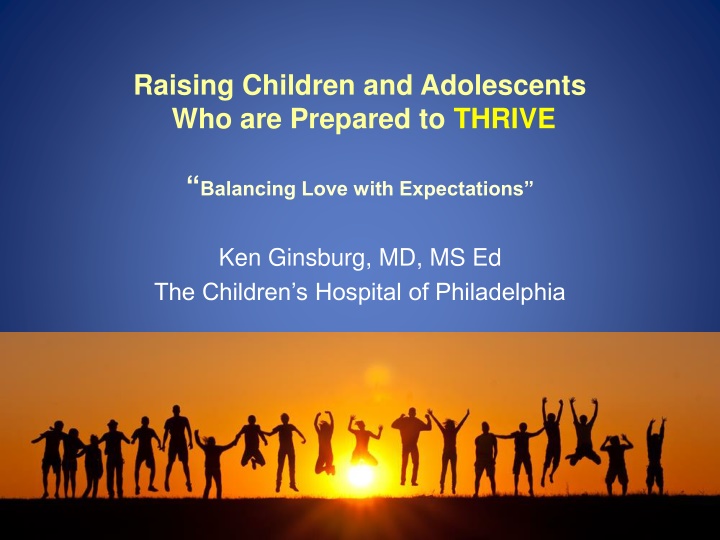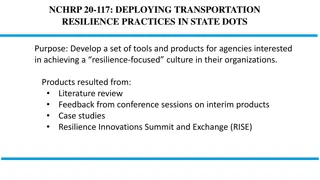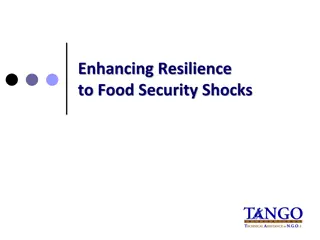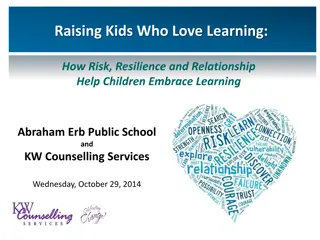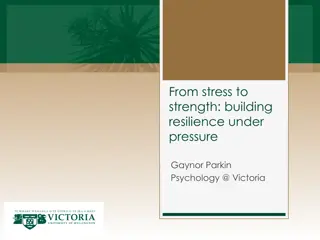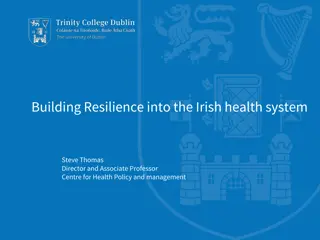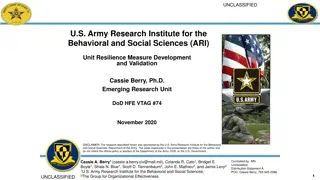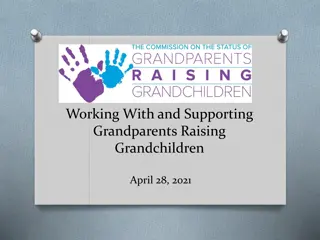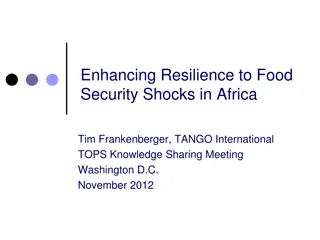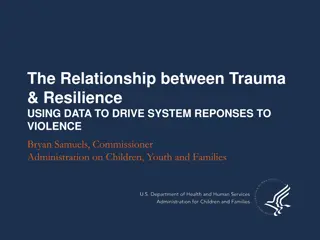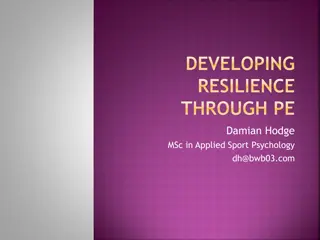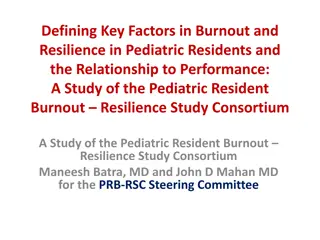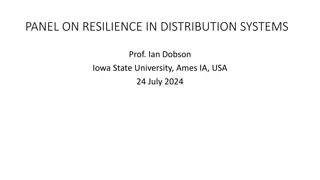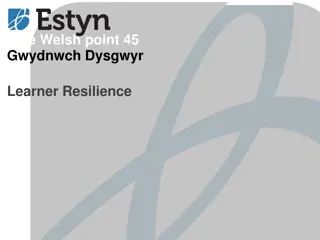Raising Children for Resilience
This content explores the importance of raising resilient children and adolescents, balancing love with expectations. It delves into defining success, the role of play in happiness and success, and the concept of resilience as a mindset affected by supports and circumstances. It emphasizes the key role of important adults in nurturing resilience in young people. Additionally, it discusses the protective force of falling in love and outlines the 7 Cs of resilience: confidence, competence, connection, character, contribution, coping, and control.
Download Presentation

Please find below an Image/Link to download the presentation.
The content on the website is provided AS IS for your information and personal use only. It may not be sold, licensed, or shared on other websites without obtaining consent from the author.If you encounter any issues during the download, it is possible that the publisher has removed the file from their server.
You are allowed to download the files provided on this website for personal or commercial use, subject to the condition that they are used lawfully. All files are the property of their respective owners.
The content on the website is provided AS IS for your information and personal use only. It may not be sold, licensed, or shared on other websites without obtaining consent from the author.
E N D
Presentation Transcript
Raising Children and Adolescents Who are Prepared to THRIVE Balancing Love with Expectations Ken Ginsburg, MD, MS Ed The Children s Hospital of Philadelphia
How do we define success?
Do we have to make a choice between play, success and happiness?
Resilience The ability to overcome adversity The capacity to bounce back
Resilience is NOT invulnerability
Resilience is NOT a character trait It is affected by supports and circumstances!!!
The bottom line Young people will be more resilient if the important adults in their lives believe in them unconditionally and hold them to high expectations Young people live up or down to the expectations we set for them
Falling in Love to Last a Lifetime: The Most Protective Force in Your Children s Lives
The 7 Cs of Resilience 1. Confidence 2. Competence 3. Connection 4. Character 5. Contribution 6. Coping 7. Control References: Little, 1993; Pittman et al., 2003; Eccles & Gootman , 2002; Roth & Brooks- Gunn 2003; Lerner, 2004; Ginsburg, 2006; Frankowski, Leader & Duncan, 2009.
Big Question 1: How do we love our children without conditions, but still hold them to high expectations?
The importance of Connection can not be overstated Family School Community
Why does it feel like our connection is challenged during adolescence?
Can we be too connected with our children?
Perfectionism: A Challenge to both Resilience and Success (And Why an Unrealistic Bar is Harmful)
What is Perfectionism? And why isn t is a good thing?
Self Loathing Fear of the B+ Fear of the D word No out-of-the-box thought The death of creativity Resents constructive feedback
The Lies You Dont Want to Buy Into The SAT s will pave the way You have to be good at everything Just put it off
Dont say just try your best Victims of a toxic society What do we praise or notice? Desire to spare us
Choosing to Know Your Child: The Greatest Gift You Can Give BOTH of You High expectations are about your child being his or her best person
Learning to build a high achiever Letting young people make mistakes Praising effort rather than results Building Spikes Celebrating Unevenness
Not all perfectionists are perfect
Your Long Term Goal: Building a Healthy Adult
Your Short Term Goal: Having Your Child Love Learning
Your Medium Term Goal: Having Your Child Find the Right Academic Match That Will Foster Love of Learning
When Resilience Reaches Its Limits Physical symptoms Fatigue Disinterest Dropping grades Sad mood Irritability/anger Substance use
When Your Tolerance Reaches Its Limits Falling Back in Love Catching Your Kid Being Good Holding to the Highest Expectation Honoring Your Spouse/Partner
Rebooting Your Relationship Forgiveness Being clear about your intentions to change Being on the same page as your spouse Apologizing Listening
Rebooting Your Relationship Not triggering reactions The I Statement Never Belittling a feeling Never say I understand
Rebooting Your Relationship Helping youth express their emotional thoughts Check your assumptions Stay on the current issue Recognize their expertise Be prepared to offer solutions Guiding youth to own their solutions (Next time!)
The Greatest Gift You Can Give Your Child
